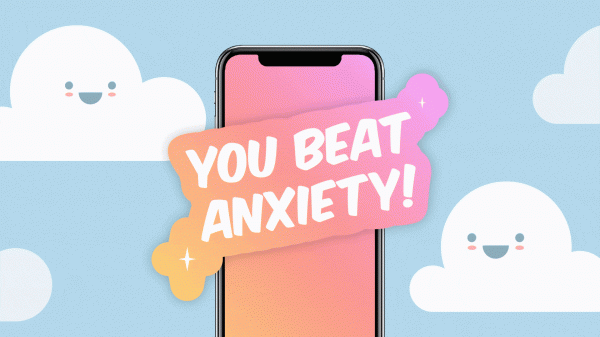
These apps make a game out of relieving anxiety. They may be onto something.
Popular apps are awarding points for beating “bad guys” and completing “power-ups” — and drawing from real, clinically approved treatments.
By
Sigal Samuel
Updated
Mar 12, 2020, 2:20pm EDT
Share this story
-
Share this on Facebook
-
Share this on Twitter
-
Share
All sharing options
Share
All sharing options for:
These apps make a game out of relieving anxiety. They may be onto something.
-
Reddit
-
Pocket
-
Flipboard
-
Email

Part of Issue #6 of The Highlight, our home for ambitious stories that explain our world.
When Jane McGonigal started feeling anxious as hell 10 years ago, she unwittingly joined a club with 40 million members. That’s how many American adults are affected by anxiety — the most common mental illness in the country — every single year.
McGonigal’s problems started when she suffered a concussion in the summer of 2009. The side effects, she says, were brutal. She spent months in bed with non-stop headaches, nausea, vertigo, memory loss, and, ultimately, serious anxiety and depression. She began to think the pain would never end. She was suicidal.
But McGonigal had something that set her apart from other anxiety sufferers: She is a game designer. She spent a decade researching the psychology of games, even writing a dissertation on it, so she knew that games can help us face tough challenges with more creativity and optimism. And her anxiety was definitely a tough challenge.
I am either going to kill myself, she thought, or I am going to turn this into a game.
She chose the latter. Being a Buffy the Vampire Slayer fan, she created a mental game for herself called “Jane the Concussion Slayer.” The object was to recover faster by avoiding “bad guys” that triggered her symptoms (like bright lights) and engaging in “power-ups” that made her feel good (like a walk around the block). She recruited allies — her sister, her husband — to play along. And even though her physical pain persisted for months, she says she suffered less emotional pain within days.
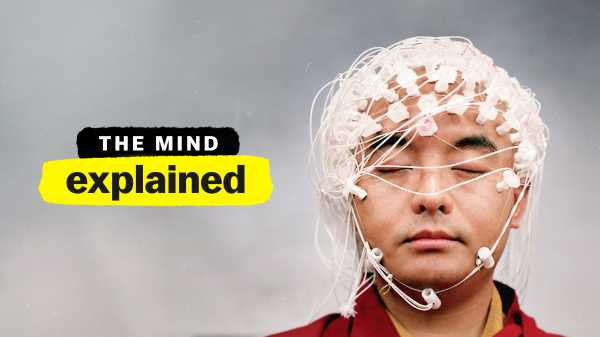
Ever wonder how your mind works? Watch The Mind, Explained, our 5-part miniseries on the workings of the brain. Available to stream now on Netflix.
Eager to share her game with others, she rebranded it SuperBetter and developed a smartphone app, which she launched in 2012. A million users have since played it to work through symptoms of anxiety and other issues.
Americans — a whopping one-third of whom will experience an anxiety disorder at some point in their lives — have proven there’s a huge market for products that promise to relieve their distress. Anxiety consumerism is now big business. As some people become disenchanted with pharmaceuticals and their side effects, they’re buying fidget spinners, weighted blankets, and apps. In fact, market researchers are forecasting that growing numbers of people will increasingly turn to apps instead of pills to alleviate their mental health problems.
I downloaded SuperBetter on my phone to see how it would work. The first thing that struck me was its bright rainbow color scheme, which felt cheerful, even cutesy. The app opens with a prompt to identify the main challenge you want to work on, such as anxiety, and then presents a curated series of “quests” and “power-ups,” such as deep breathing or exercising. It rewards players with points when they’re achieved.
Players, meanwhile, vanquish “bad guys” (like black-and-white thinking or catastrophizing), enlist allies (real-life friends), and go for an “epic win.” It feels just like a video game — so much so that I almost didn’t notice the smorgasbord of exercises was mined from clinically proven treatment approaches like cognitive behavioral therapy.
At first, I rolled my eyes at the exercises, thinking they were too simple to do much good. Plus, I found the app’s cheerfulness almost oppressive: “Keep going — you can finish it!” it encouraged me at every turn. But despite myself, I began to find the app really fun. I kept coming back to it whenever I wanted to de-stress or kick an unhealthy habit. It got me to take long walks and second-guess myself less.
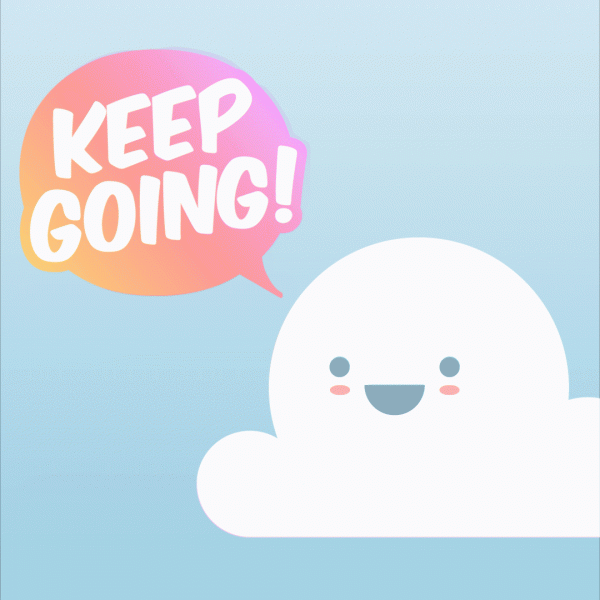

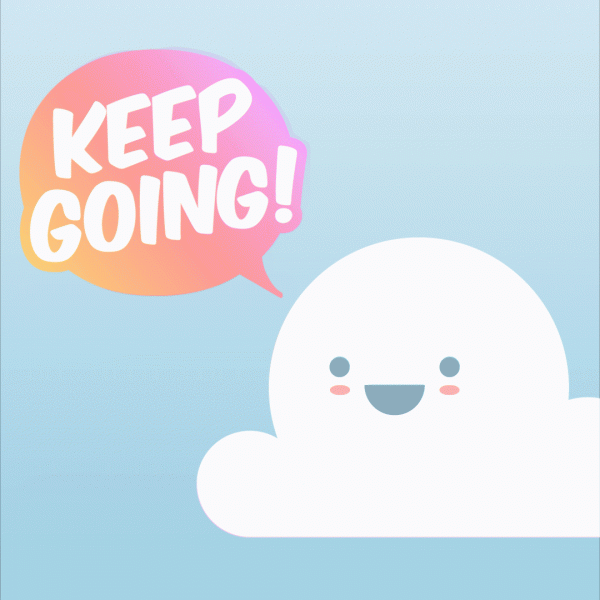
SuperBetter may be the app that most explicitly turns battling anxiety into a game, but it’s by no means the only one. The past few years have seen an explosion in such apps — there’s Headspace, Happify, Calm, Mind Ease, MindShift, Personal Zen, and Stop, Breathe & Think, to name a few.
The apps vary widely; some resemble games a lot more than others do. But to one degree or another, they all use what’s known as gamification — the application of classic gaming elements, like scoring points, to a non-game context, like mental health. Uniting the apps is a relentless spirit of playful positivity.
They’re colorful and cheerful! They award “badges” and “stickers”! They urge you to use emojis to record your feelings! They congratulate you for achieving a streak of consecutive days spent meditating! They give you panda gifs and fireworks displays!
It’s not surprising that gamified anxiety apps are flooding the market. Gamification is increasingly used as a tool for behavior modification in many fields, from dating (ever been Super Liked?) to language-learning.
But it’s fair to ask whether making anxiety apps into fun games might fuel our societal addiction to tech, which could, in turn, make our anxiety even worse. In fact, you might wonder whether the tech world is trying to sell us on a solution to a problem that is partly of its own making. Silicon Valley’s attention economy has long used psychological inducements to get us hooked on devices, upping our user engagement in order to maximize their profit.
Which makes it more urgent to ask: Do these apps actually work to relieve anxiety?
The science behind gamification and its effects on anxiety
Anxiety is a broad term for a range of disorders, from generalized anxiety disorder to social anxiety to specific phobias. Its symptoms can be both physical (chest pain, palpitations) and mental (inability to stop worrying, fear of losing control). Sometimes, it manifests as insomnia. As a general rule, it really sucks.
And it seems to be getting worse. Young people in particular report ever higher levels of anxiety in annual surveys. Experts debate whether we’re actually more anxious than our parents or grandparents were, or whether we’re just reporting and being diagnosed with anxiety at higher rates. Either way, there’s definitely a widespread perception that we’re becoming increasingly anxious. Just Google “millennials and anxiety” and you’ll find countless articles calling millennials “the most anxious generation in history.”
What’s causing all this chronic worry? People have blamed smartphones, climate change, the economy, President Trump, or any other number of things. The truth is, we don’t have enough evidence to lay the blame confidently at any one doorstep. The sources of anxiety are multiple and different for different people.
Here’s something we do know: Anxiety sufferers face a lot of barriers when trying to access conventional mental health treatment. Therapy is expensive and time-consuming. Medication often comes with stigma and side effects, and gaining access to it requires going through medical gatekeepers. Gamified apps, by contrast, make treatment seem engaging, portable, destigmatized, prescriptionless, and cheap, if not totally free.
Yet very few have been scientifically tested.
“In the past decade there’s been a big movement toward gamification [in mental health apps], but there’s a lack of empirical evidence around these techniques,” says Tracy Dennis-Tiwary, a psychology professor at Hunter College who studies gamified apps. Just because a CBT exercise works in a clinical setting, she said, you can’t assume it’ll work when delivered through a gamified app. “If we’re going to make this digital therapeutics field work, we need more of an evidence base, because right now it’s the Wild West.”
Research suggests that gamification generally boosts motivation and user engagement. That’s why Uber uses it to induce drivers to work longer hours in specific locations, Tinder uses it to get us to keep swiping even after we’ve found a good date, and Duolingo uses it to make sure we don’t miss a single day of language-learning. Mental health apps use gamification for the same reasons: motivation and engagement. For those suffering from anxiety or its often co-occurring cousin, depression, it can be hard to find motivation to keep working on their issues. And if they don’t enjoy an app, they’re likely to engage less and less with the evidence-based treatments baked into it. It’s those treatments that make the app effective.
In a way, gamifying mental health treatment is like coating broccoli with candy to get us to eat it.
Playing SuperBetter certainly feels like eating candy. A 2016 systematic review of previous studies noted that “SuperBetter allows ‘snacktivity,’ frequent, brief activities that can be done a few minutes at a time, every day or more often (therefore like “snacking” behavior).” It added that the app has been validated in randomized controlled trials: “Participants who were asked to play SuperBetter for 10 minutes daily over 30 days experienced significantly greater reductions in depressive symptoms and anxiety compared to a waitlist control group.”
The SuperBetter website points to the findings of the trial, conducted at the University of Pennsylvania and published in 2015. It also lists a clinical trial at the Ohio State University Wexner Medical Center that suggested that apps structured like games, with the user positioned as a hero trying to achieve a win, help teens with unresolved concussion symptoms. McGonigal, the inventor of SuperBetter, is a co-author on that 2017 study.
The website also boasts impressive results in two meta-analysis studies, which showed that SuperBetter had the greatest effect for reducing anxiety and depression symptoms, compared to a host of other smartphone apps also evaluated in randomized controlled trials.
Even on SuperBetter itself, McGonigal likes to lead with the science. The app shows you Science Cards, mini-articles that explain exactly why its exercises — from mindfulness meditation to gratitude journaling — are effective at changing your brain to reduce anxiety. Many of them link out to articles and books written by scientists, including the app inventor’s twin sister, Stanford psychologist Kelly McGonigal. Kelly was the first person Jane McGonigal called when she decided to create her recovery game in 2009, and she later incorporated the research of many other experts.
Dennis-Tiwary, the Hunter College psychologist, has developed her own anxiety-reducing app, Personal Zen. It’s unlike most other apps in the space in that it makes a game of just one cognitive treatment: attention-bias modification training (ABMT). The basic idea is that if you’re anxious, you tend to latch onto negative information in the world and filter out the positive, a habit that further feeds anxiety. ABMT helps by retraining your attention to disengage from the negative and favor the positive.
In the Personal Zen game, an angry face (negative) and a happy face (positive) zoom around a desolate grey landscape. You have to trace the path of sparkles left by the happy face, while ignoring the angry face. Do that quickly and the app will reward you with a colorful gem or medallion. The more you do it, the more the landscape fills up with lush color.
It sounds simple, yet the app’s effectiveness in treating stress and anxiety was demonstrated in a handful of clinical trials. One 2017 study, co-authored by Dennis-Tiwary and published in Biological Psychology, targeted pregnant women. It showed that playing the game reduced the level of cortisol, the primary stress hormone, in their bodies after a month of use.
In addition to attention training, another useful technique for reducing anxiety is cognitive absorption — just taking your mind off whatever you’re ruminating about. And you know what’s really good for that? Video games. They don’t necessarily need to be games specifically designed to reduce anxiety. Research shows that even good old Tetris or Fortnite can do the trick. A study of 112 kids undergoing surgery, for example, demonstrated that playing a handheld video game before the operation was effective at reducing anxiety — even more effective than anti-anxiety medication.
Potential pitfalls with gamified anxiety apps
One night around 11 pm, I was tinkering with Stop, Breathe & Think, an app that drives users towards stress-taming exercises in much the same way SuperBetter does. I had just completed the mini-meditation it recommended, so it rewarded me with the “Night Owl” sticker. I was about to do another exercise when my friend texted, asking if I wanted to have a phone call. I ignored her. There were 43 other stickers waiting to be collected on this app, and I kind of wanted them.
A moment later, I realized how foolish that was. Surely, talking to my friend (or, for that matter, going to sleep at 11 pm) would be better for my well-being than racking up another virtual reward.
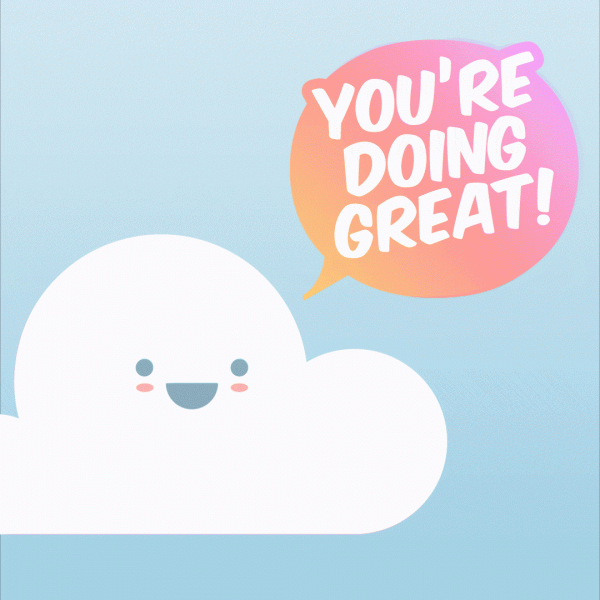

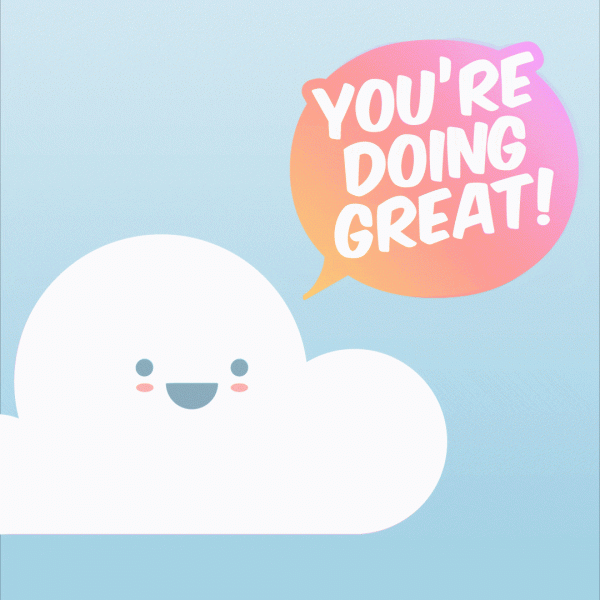
Gamification keeps us coming back, but to a point that can actually start to feel addictive, cutting into our time with restorative forces such as friendship or sleep. Many gamified anxiety apps incorporate research by trained psychologists. But they’re often collaborations between psychologists, game designers, and entrepreneurs.
“The key is, don’t put too much candy on the broccoli, otherwise you defeat the purpose,” said Spencer Greenberg, founder of the Mind Ease app, which purports to offer quick anxiety relief. “I think there’s a temptation for startups to just try to get user engagement, because they can go to investors with it. But that’s not a long-term solution. If you’re not actually providing value, engagement doesn’t buy you much.”
McGonigal said she designed SuperBetter in a way that indicates people should use it for about 10 minutes a day, not 10 hours. “We have a recommended dose of engagement: You do three power-ups, do one quest, and battle one bad guy a day. We’ve specifically designed the app so that we cut you off — you can’t earn more points or keep leveling up after that,” she said, adding that she recommends a 30-day intervention to acquire skills like attention training. “We don’t think this type of app is meant to be used forever.”
Dennis-Tiwary has a similar mindset. If you want to increase anxiety, she told me, the best thing you can do is avoid your feelings, and that’s what often happens when you escape into your phone. So, she said, “We’re ethically bound to try to create the briefest interventions possible, with the biggest bang in terms of efficacy.”
To that end, she’s conducting studies to find out just how brief a session of Personal Zen can be without losing its efficacy. Her ideal is for people to play the game on their daily commute, just like they play Candy Crush — and then put their phones away.
That’s very different from what most app designers want, which is to “hook” users to maximize profit. But she says it would be ethically problematic to make an app that boosts engagement to the point that it’s addictive, and charge people struggling with mental illness to engage with that app.
Personal Zen just moved to a subscription model after being free for eight years. SuperBetter is still free. Mind Ease is free for now, but Greenberg said the plan is to eventually start charging a monthly fee — in some countries.
“We want to charge in the developed world, where people can afford to pay. In the developing world, we want to give the app away for free,” he said.
“I want to believe I feel better”
Mind Ease is one of several apps that asks users to rate their anxiety level before and after they complete an exercise. That allows the company to then advertise — to users and investors alike — that it’s helped reduce symptoms by a certain percentage. For example, after I did a progressive muscle relaxation and re-rated my feelings, Mind Ease told me: “Fantastic! The exercise helped you reduce your negative feelings by 50 percent, and your overall mood also improved by a factor of 1.13x. Great job!”
The thing is, after the exercise, I always feel there’s a cognitive bias pushing me to say that I feel better. That’s both because I want to believe I feel better and because of demand characteristics, the bias that happens when you feel you’ve figured out what the researchers’ expectation is and you want to fulfill that expectation, so you respond in a way that conforms to it.
So, does users’ self-reported decrease in anxiety really reflect more objective progress? Are we actually seeing our anxiety reduced, or are we just winning the game? Perhaps it doesn’t matter if there’s a placebo effect at work, because even so, the effect is positive?
Both McGonigal and Greenberg told me they doubt that it’s mostly a placebo, because the science on how CBT and mindfulness exercises work to reduce anxiety is well documented. But both also said that to the extent placebo is playing some role, that’s not a bad thing. “If people feel better because they think they’re supposed to, and all you’ve done is have them spend 10 minutes on an app, that’s among the more ethical ways to deliver a placebo effect,” McGonigal said.
For her part, Dennis-Tiwary leans toward more objective measures, like testing users’ levels of the stress hormone cortisol in the lab. “If your measure is a subjective slider on a scale from one to five, that’s not good, conclusive science,” she said. “If we’re selling a product and claiming it’s a mental health treatment, we cannot offer snake oil. There are already a lot of people [in tech] who are making land grabs with inaccurate claims and trying to make money off everyone’s suffering. We have to do better than that.”
There’s certainly an irony — some might say hypocrisy — in the tech world offering to solve a problem that it contributes to. Although we still need more data to determine the extent to which smartphone use may be driving increases in anxiety, it’s reasonable to suppose that technologies purposely designed to be addictive have at the very least been a contributing factor. So, even as we accumulate scientific evidence that some gamified apps are effective at reducing anxiety, we’d do well to think critically about how we use them.
McGonigal agrees that these apps need to be designed ethically, validated empirically, and used judiciously. But she has no doubt that for her, at least, turning the battle with anxiety into a game has taught her how to suffer less. With a laugh, she told me she’s just celebrated her “traumaversary,” the 10th anniversary of her concussion.
“I think I can finally say now — given the good that it led to — I’m happy it happened.”
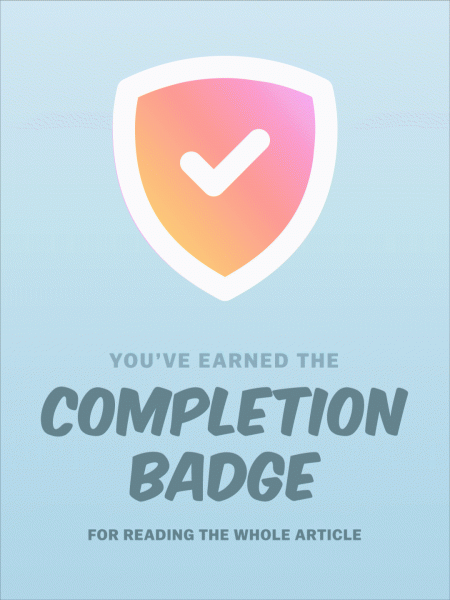

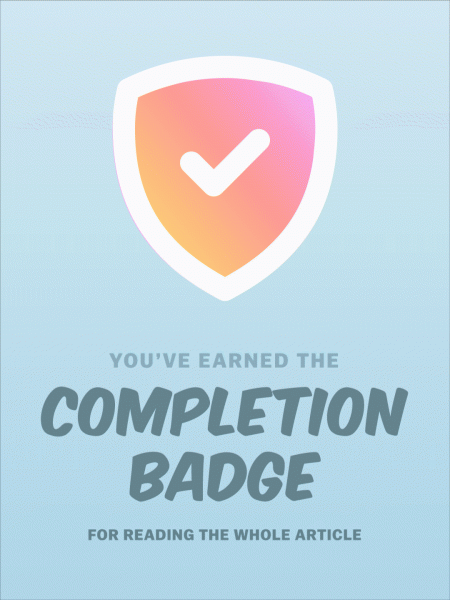
Sigal Samuel writes about artificial intelligence, neuroscience, and the intersection of technology and religion for Vox’s Future Perfect. Reporting for this article was supported by Public Theologies of Technology and Presence, a journalism and research initiative based at the Institute of Buddhist Studies and funded by the Henry Luce Foundation.
More from this issue of The Highlight
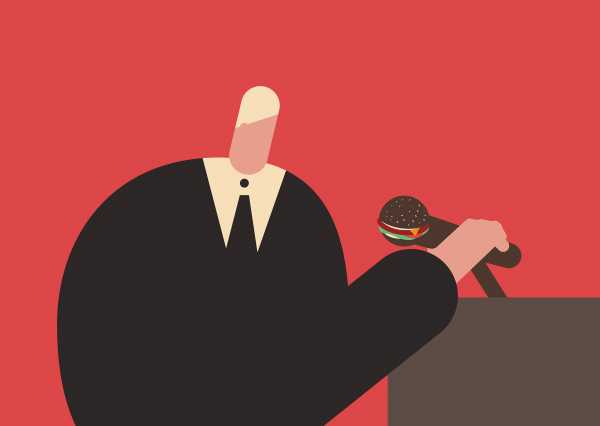
- The faux meat revolution — and how it got caught in our cultural divide
- Will luxury towers edge out the last of the working-class Chinese in New York’s iconic Chinatown?
- “Heritage travel” is surging in the era of DNA testing. It has a special significance for black Americans.
- The US almost tore itself apart to get to 50 states. Can DC make it 51?
Sourse: vox.com





